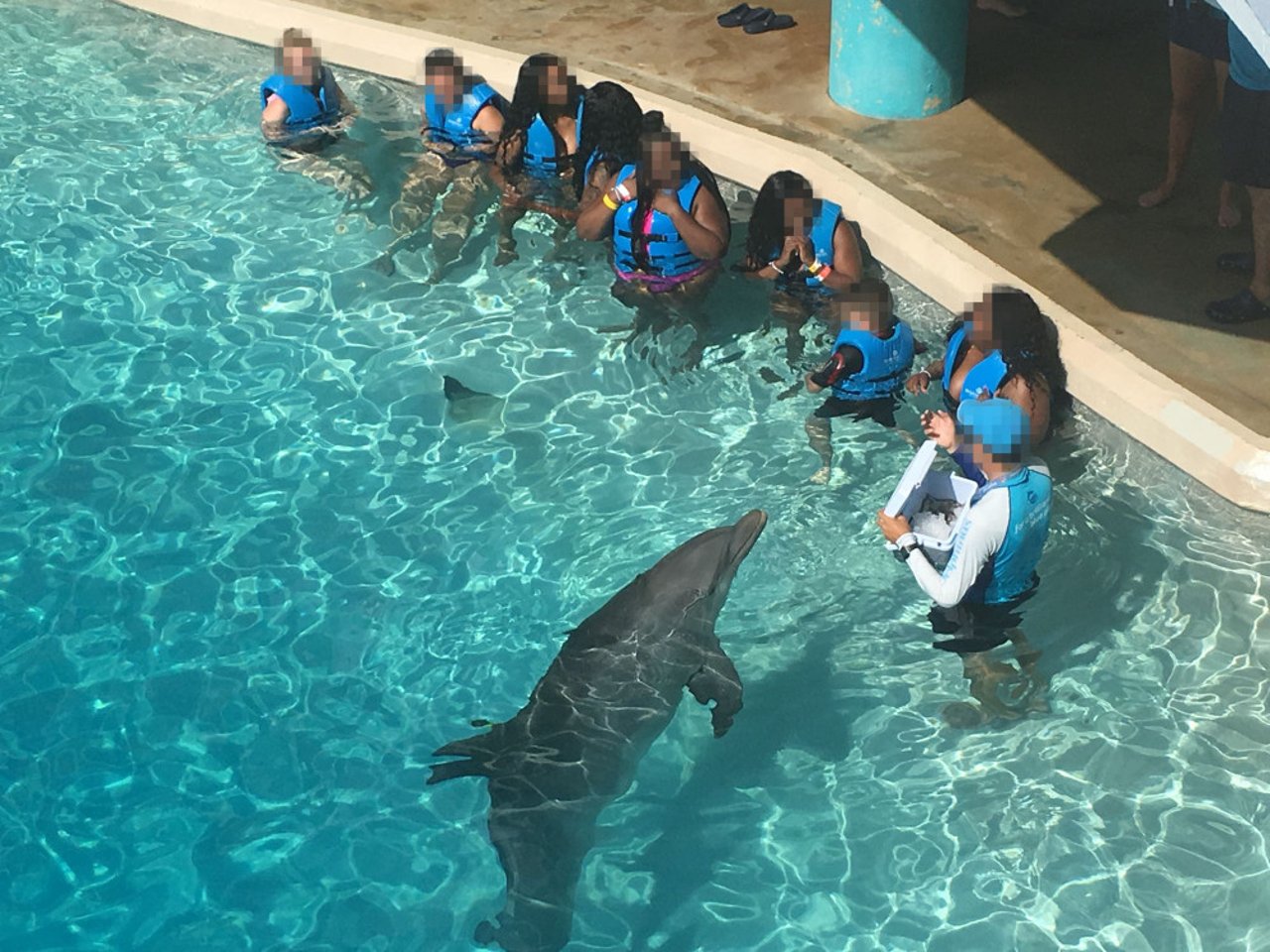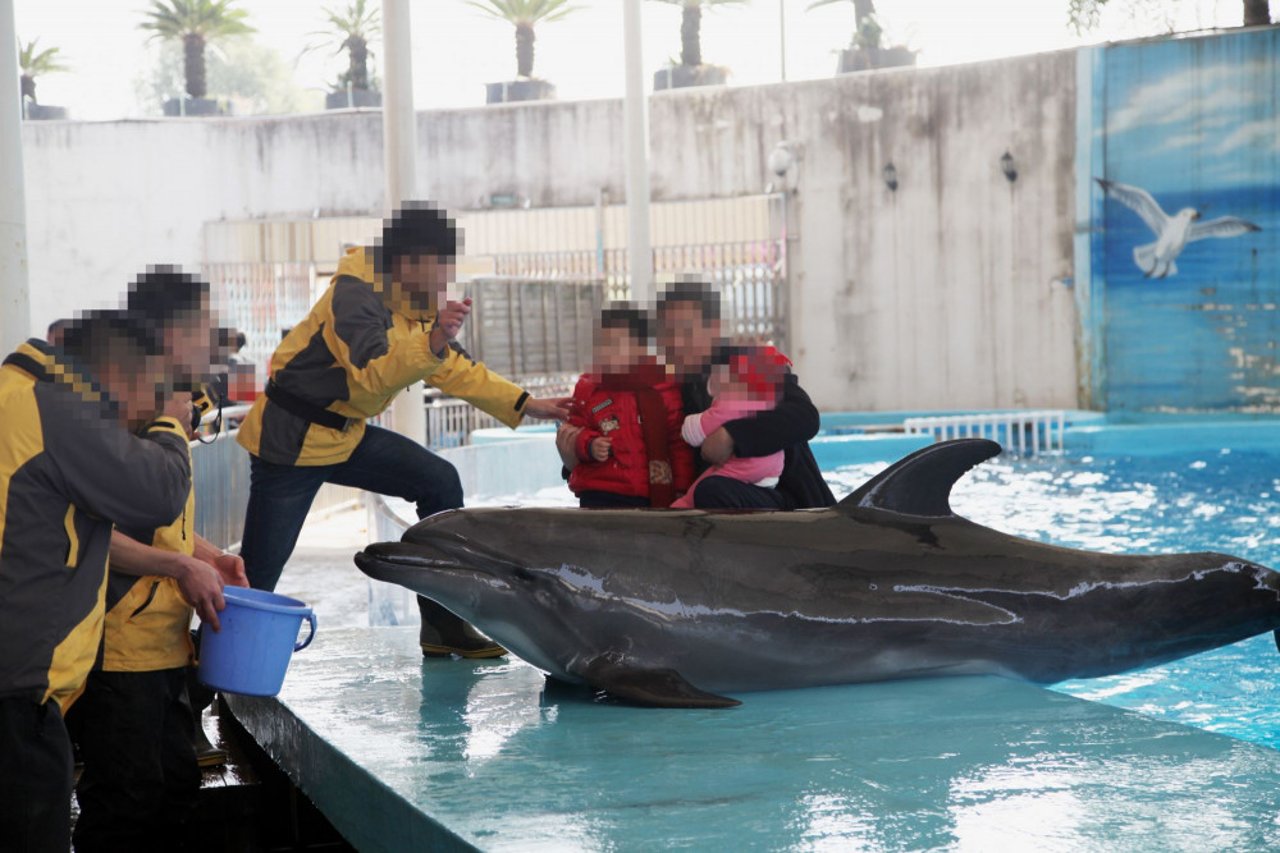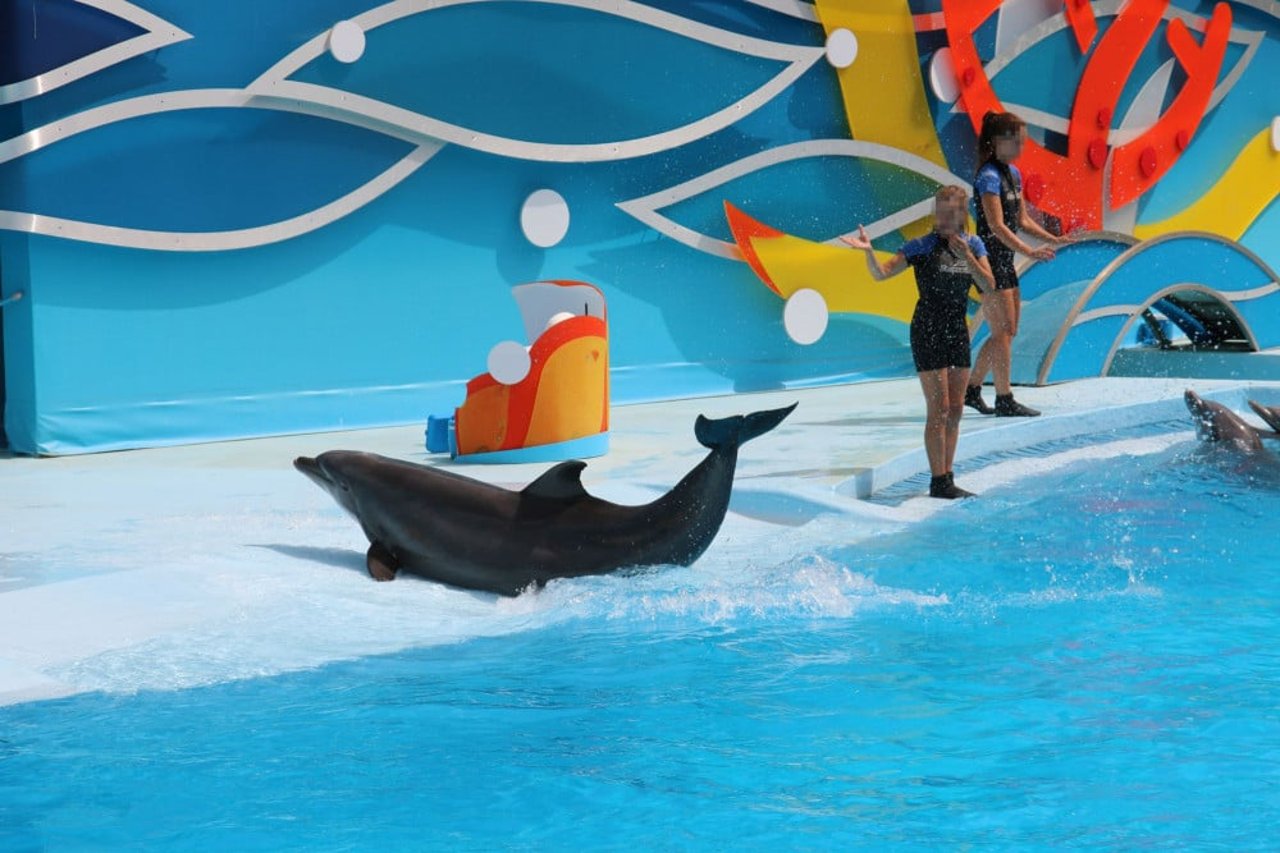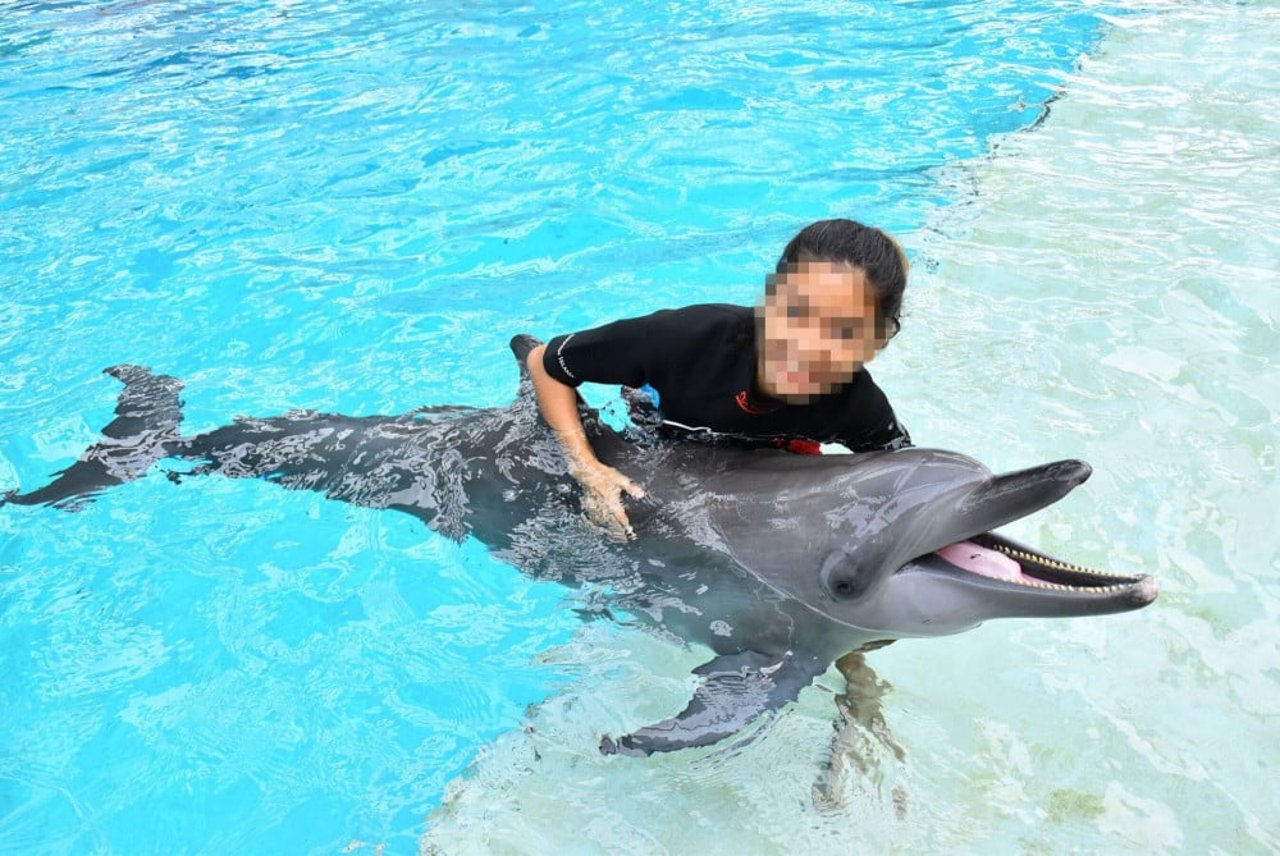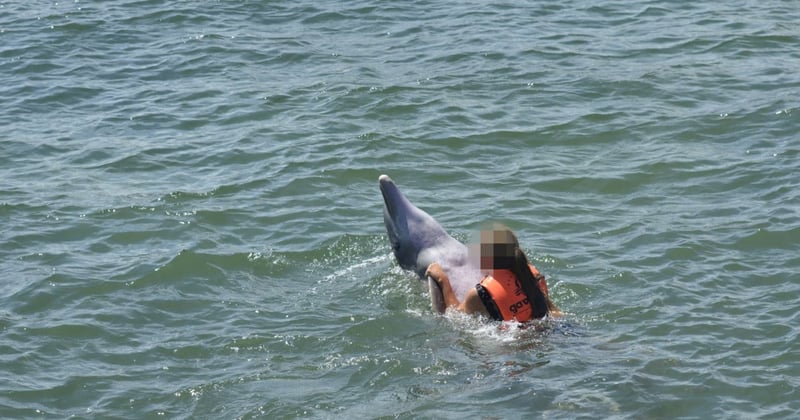
10-year-old attacked by dolphins: the dangers of wild animal interactions
News
The tourism industry has painted dolphins as smiling playmates. But what dangers does the captive dolphin industry really pose to humans and animals?
This week, a 10-year-old British girl was attacked by captive dolphins while on a swim with dolphins experience sold by travel giant TUI. Luckily, the girl survived, although she was left with several cuts, bruises and bite marks.
The two dolphins, who are held captive in a closed-off area of sea (also known as a sea pen) at Dolphin Discovery in Cancun, Mexico, bit and dragged the girl underwater, to the horror of the trainers and her mother who was watching close by.
Many tourist venues sell close-contact interactions with dolphins, describing them as family-friendly, magical moments. Animal-loving tourists book these experiences with good intentions and don't realise the hidden risk and cruelty that these businesses are profiting from.
Dolphins in captivity at Cancun Interactive Aquarium, Mexico
Attacks are more common than you think
Perpetuating the image of dolphins as docile, smiling playmates, the industry ignores their predatory nature. These complex hunters are capable of inflicting serious injuries upon each other and humans.
Dolphins at swim-with attractions have been known to seriously hurt humans by butting them. The resulting injuries have included lacerations and broken bones. Even contact with dolphins outside of the water can result in bite injuries, and there have been many incidents of children being bitten during feeding interactions.
The venues know about the risks humans face when interacting with dolphins. The liability release forms at marine mammal entertainment venues highlight this, using clear language to indemnify the venue and its employees against lawsuits pertaining to the injury or death of participants.
Visitors posing with a captive dolphin at an entertainment park in China
Not even trainers are safe
At Loro Parque in Tenerife, staff who do ’water work’ with dolphins (meaning they enter the water with the dolphins) carry a cylinder of five minutes’ worth of air to be used in emergencies. This highlights the inherent risks involved in working in the water with dolphins.
The safe, ‘family-friendly’ atmosphere that venues such as this strive to portray is in sharp contrast to the need for trainers to carry oxygen in case they are dragged underwater by the animals.
Dolphins in entertainment at Zoomarine, Portugal
Dolphins are extremely distressed
In tourist venues, dolphins are confined to tanks or pens 200,000 times smaller than their natural habitat range in the ocean - and these human-made tanks are a far cry from the rich diversity of plants and other animals they would encounter in the wild. Dolphins are trapped in environments where they're unable to behave naturally, and are often trained through food deprivation.
These are only some of the reasons these animals silently suffer when trapped in the tourist entertainment industry.
Our recent 'Behind the smile: The multi-billion dollar dolphin entertainment industry' report shines a light on the lies that the multi-billion captive dolphin entertainment industry has been telling tourists for years, manipulating the image of the "happy dolphin" to cash in on a business that is cruel to dolphins and dangerous to humans.
Nick Stewart, our Wildlife Campaigns Manager, said:
“This is a tragic example of how support for this cruel industry by travel companies like Expedia Group also puts customers at risk. Dolphins are large and powerful marine predators and interacting with them poses serious health and safety concerns for both people and animals. This is not the first time this has happened. Dolphins are wild animals, not playthings and not entertainers as the misinformation from this inhumane industry would have the public believe.”
We are deeply saddened that the little girl and her family had to go through this horrific tragedy, and we hope that she makes a speedy recovery. Meanwhile, travel companies like Expedia Group and TUI continue to profit from dolphin venues offering swimming with dolphins.
A dolphin being used for photo opportunities at Resort World Sentosa, Singapore
How you can help dolphins
There are no winners in the captive dolphin industry, except for the venues and travel companies who are lining their pockets by misleading tourists. It's time to put an end to this: we are campaigning to make this the last generation of dolphins in captivity.
We are moving travel giants to stop selling tickets to these cruel, misleading venues. TripAdvisor, British Airways Holidays, Booking.com and Virgin Holidays have already joined us. Here in Canada, companies including Air Canada, Transat, WestJet, and Sunwing have also recently made similar commitments to phase out the sales of tickets to these cruel venues.
Despite the 200,000+ signatures on our petition, Expedia Group is still not ready to take captive dolphin attractions off of sale.
Perpetuating the image of dolphins as docile, smiling playmates, the industry ignores their predatory nature. These complex hunters are capable of inflicting serious injuries upon each other and humans.
